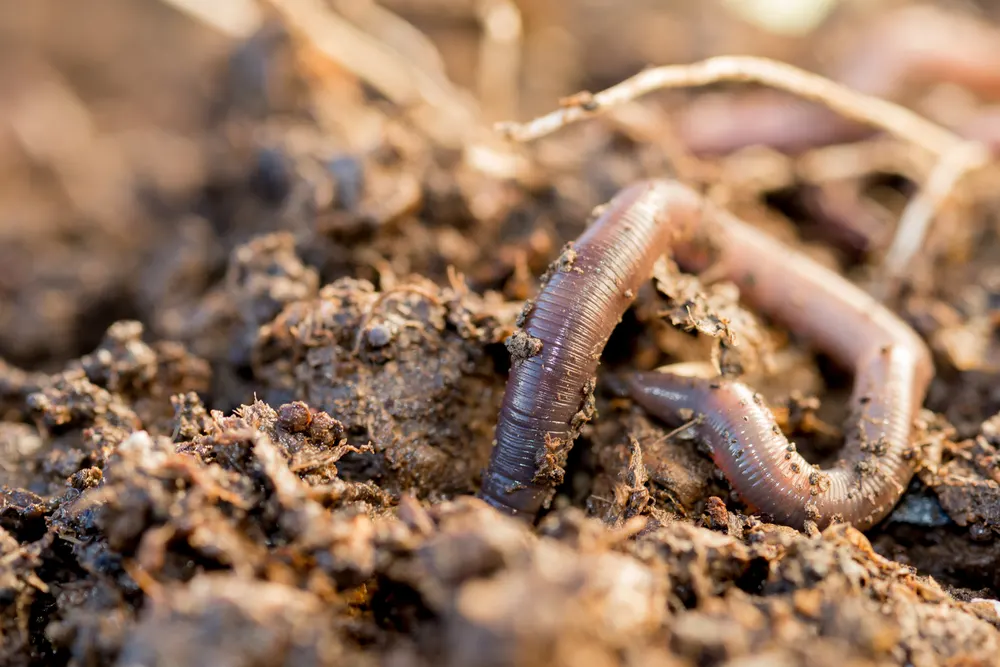
When you type your query with nimble and curious fingers into a search bar: “why attract earthworms”, what comes up?
Why would you want earthworms in your garden?
Are earthworms good for soil?
Do earthworms have a purpose?
To the last question I honestly have to ask, “Seriously?!” Of course earthworms have a purpose.
Every living and non-living thing has an essential place in the greater environment – good and “not-so-good-for-us” combined. It might be better to ask: “What is the purpose of earthworms?” Naturally, this has a better ring to it.
Earthworms are in fact, a significant factor in making the soil, soil.
They break down organic matter, leaving behind worm castings that are an extremely valuable fertilizer.
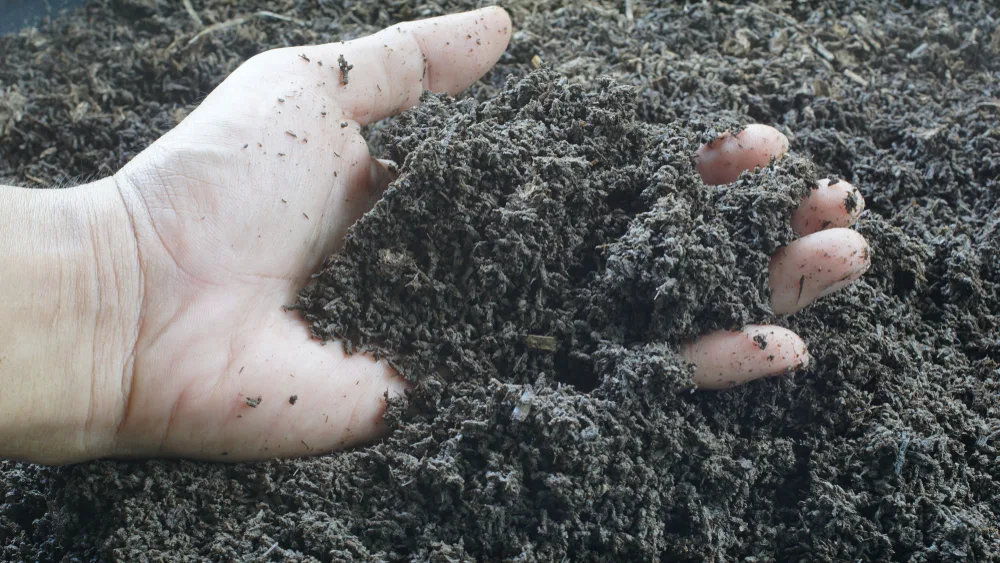
Earthworms also increase the amount of air and water that gets down deep into the soil, via their tunnels and trails.
At the same time, earthworms take essential organic matter with them from the top, mixing it further below – all without turning the soil. As the soil stays intact, you do nature a huge favor by preserving (and not disturbing) an entire ecosystem that you cannot see. If you have already experienced the benefits of no-dig gardening, it will come as no surprise to you that the quality of your soil improves the less you work with it.
If you find few to no earthworms in your soil, you should begin to ask why.
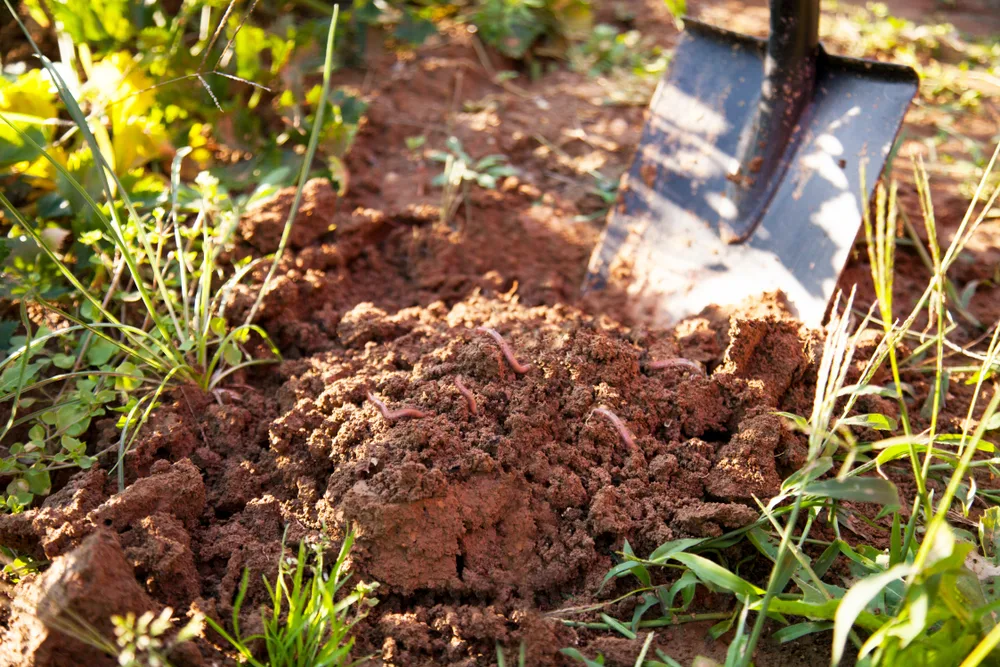
Perhaps an even bigger question to ask about earthworms, is where are they if they aren’t in my garden?
The absence of earthworms is definitely more of a conundrum than having “too many”. Not that you can have too many in the soil. Though you may have to release some from your overactive worm bin from time to time.
If you aren’t finding any worms in your garden soil, it can mean one of several things:
- there is little organic matter for them to consume
- not enough moisture in the ground, or the soil is too sandy
- the soil has been rototilled one too many times
- soil pH is too high or low
- the soil quality is generally poor
- or even toxic! (oil spills, chemicals, weedkillers and insecticides can all trigger a depopulation)
It may also be that they are deeper in the soil than you would assume. Earthworms need to stay moist (but not wet) for ultimate survival.
Sometimes it happens that predators are causing the earthworms to decline in numbers.
If you aren’t finding any in the upper soil surface, try burying an organic banana peel six inches under the ground. Be sure to cover it with some mulch and let it sit for a few days before inspecting it for earthworm activity.
When in doubt about the toxicity of your soil, get a soil test done to rule a few of these earthworm detractors out. They will absolutely not stand for “dirty” soil, neither will your garden crops.
And if what you really desire is an abundant harvest, you will want to attract all the earthworms you can get!
Why attract earthworms to your garden?
Not everyone likes the way earthworms look, feel or squiggle, yet they are very important for the health of your soil, which ultimately affects your garden harvests. So, if you don’t have a fond affection for them in this present moment, perhaps you can learn to love them in time. A little appreciation for their industrious efforts goes a long way too.
1. Earthworms improve overall soil quality
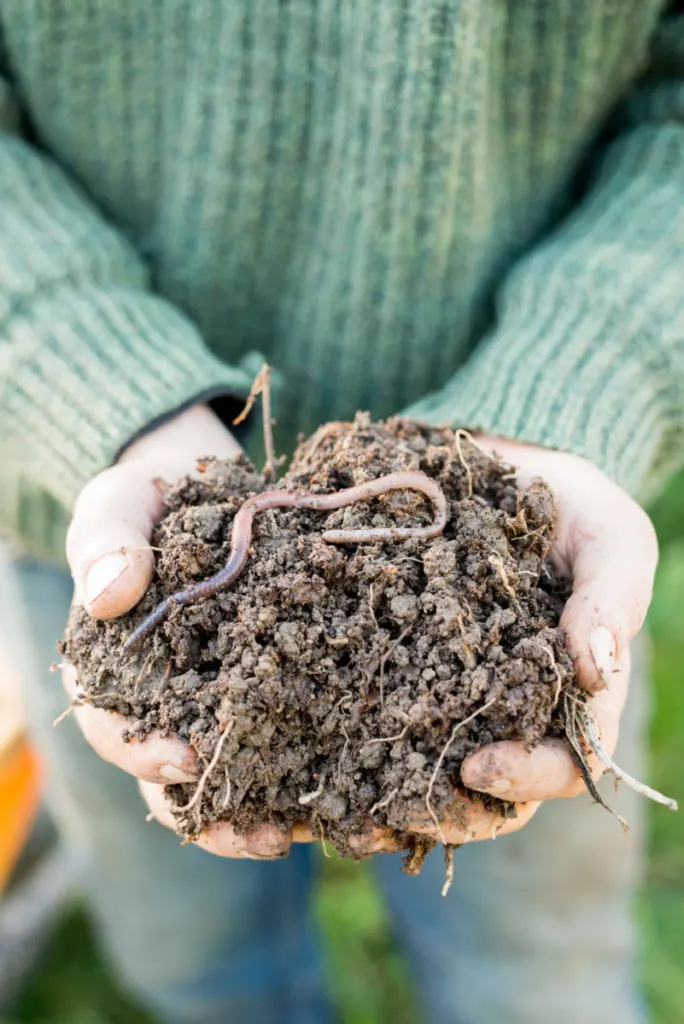
Clean water is absolutely essential for growing nutritious crops in your backyard garden, but have you ever considered how valuable your soil is?
It takes 1,000 years to build up just three centimeters of top soil, which is why it is so vitally important that we all begin to take better care of the soil we have. The soil is crucial to life on our planet.
– Elizabeth Waddington @ RuralSprout.com
Knowing how long it takes “to build” soil should already give you a better appreciation for it, and for the creatures that help it come to fruition.
Earthworms work in synergy with countless numbers of fungi and bacteria in the soil to create a valuable substrate worth planting in. As they move around in and close to the surface of the soil, feeding on plant debris (grass clippings, leaves, dead roots, manure, etc.), the earthworms move all that material through their digestive systems.
These worm castings, which you may have noticed on your lawn, are rich with nutrients. Ultimately this becomes fertilizer, which we will get to in a moment.
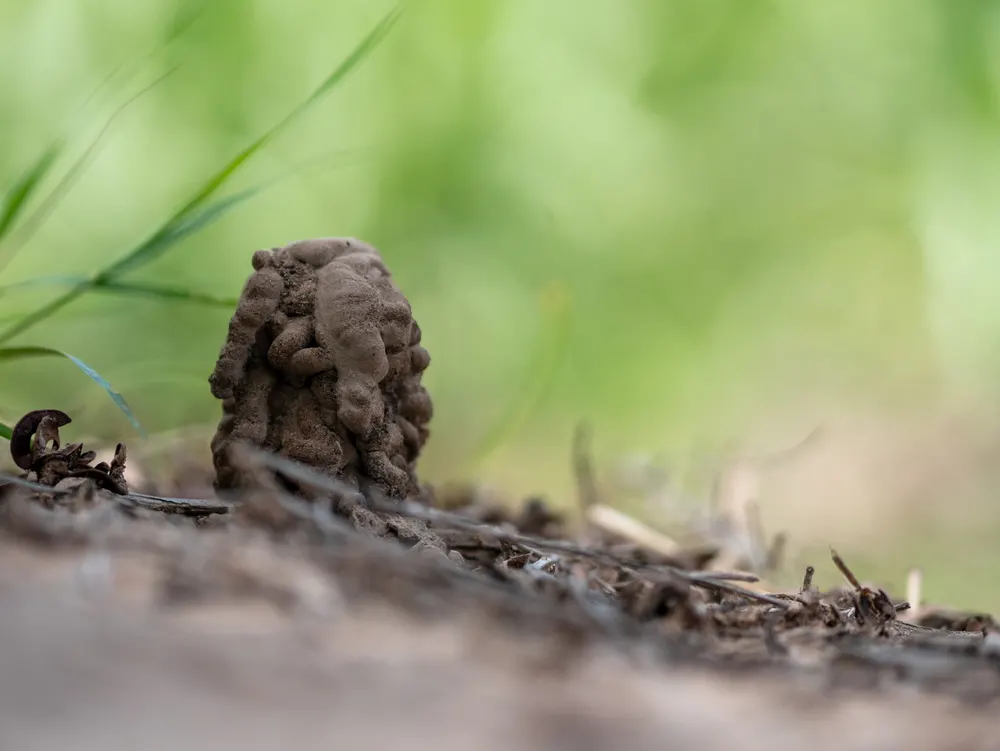
All you need to know right now, is that earthworms improve the quality of your garden soil. Soon you will find ways to cater to them and you will be excited every time you accidentally dig them up.
And no… if you cut an earthworm in half, it does not become two worms. Only the half with the head will survive, if all vital organs are in place. So be careful when digging up your garden, or don’t dig it at all! The earthworms will love you for that.
Related reading: 15 Practical Ways To Improve Your Garden Soil
2. Earthworms increase soil drainage
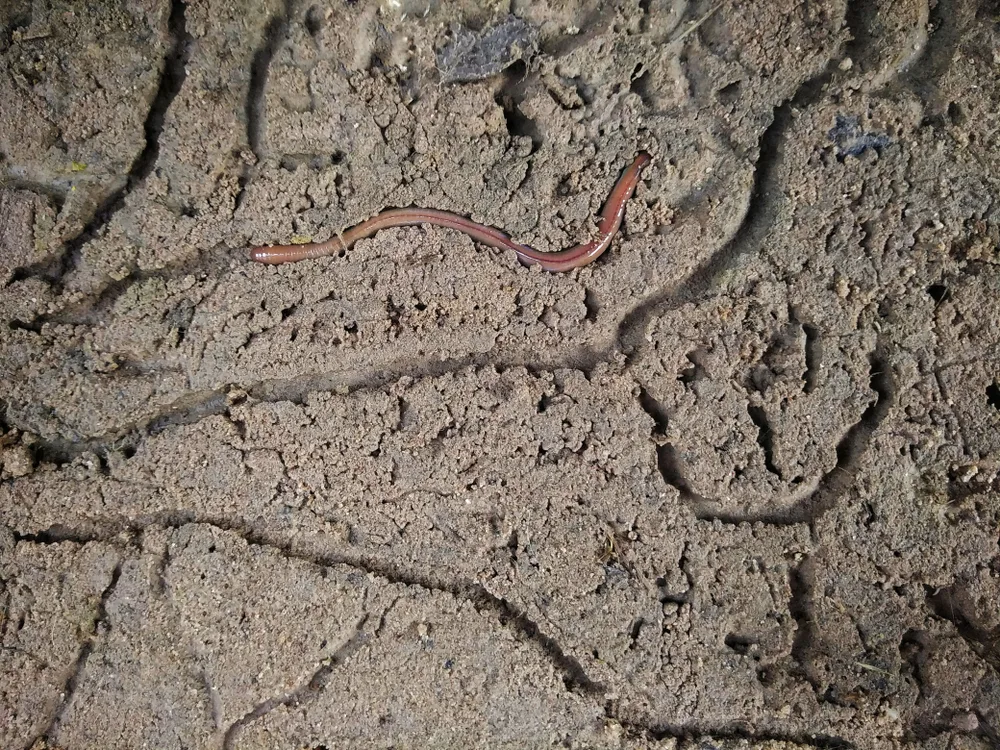
As earthworms burrow and tunnel through the soil beneath your feet, they loosen and aerate the soil wherever they go.
It has been noted that soils with a significant amount of earthworms drain up to 10 times faster than those soils where they are lacking. In no-till soils where earthworms make their presence, water infiltration also increases.
It isn’t surprising then that these underground channels and passageways can lead fertilizers and nutrients deep into the soil.
3. Earthworms fertilize your soil – for free!
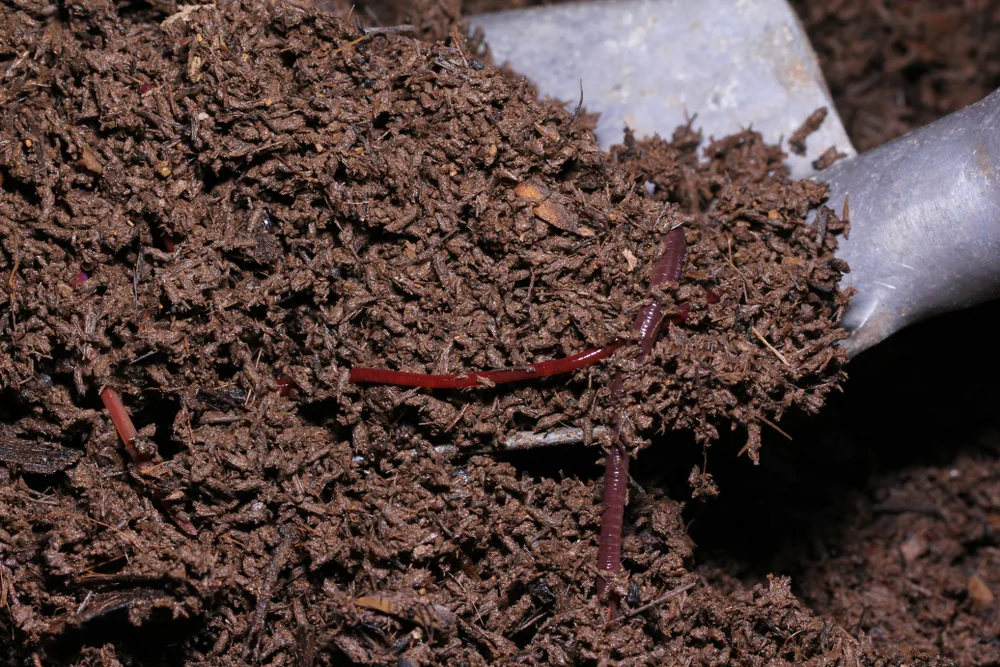
Earthworm castings, also known as worm poop, are the food to your soil.
They are the material that healthy soils are made out of.
Set your squeamish tendencies aside, being the avid gardener and homesteader that you are, put on a pair of gloves, and get ready to apply some worm castings to your garden. For they provide many benefits to any plant in your vegetable or flower beds. You can add worm castings to your container garden, directly to the soil, and around your fruit trees.
Unlike pig, cow, horse, rabbit or chicken manure, worm castings don’t need to be ripened before use. In fact, the dried worm castings can be applied at any time.
Worm castings contain a plethora of several minerals: calcium, nitrogen, phosphorus, potassium and magnesium. This alone, gives a hint to how they can benefit your garden plants.
What to do if you don’t have enough worms…
If you don’t have enough worms in your garden, yet, you can always purchase worm castings online. Just be sure they are 100% castings.
Worm castings can also be diluted in water to make a remarkable liquid fertilizer that is pure and organic.
If you have been on the search for an all-natural and all-purpose fertilizer, it is worm castings for the win!
How to attract more earthworms to your garden
Before you go about enticing more earthworms to your garden, it is useful to know whether you need to, or not. Let that be the deciding factor on the “how”.
To find out just how earthwormy your soil is, you can do a quick test.
Dig up a square patch of garden soil 12″x12″ and about 6-8″ deep. Place this on a large plastic sheet or tarp, gently breaking it up to see what is inside. 10 or more earthworms is considered a healthy sample.
Less than that and you may want to consider ways in which to attract more earthworms to your garden
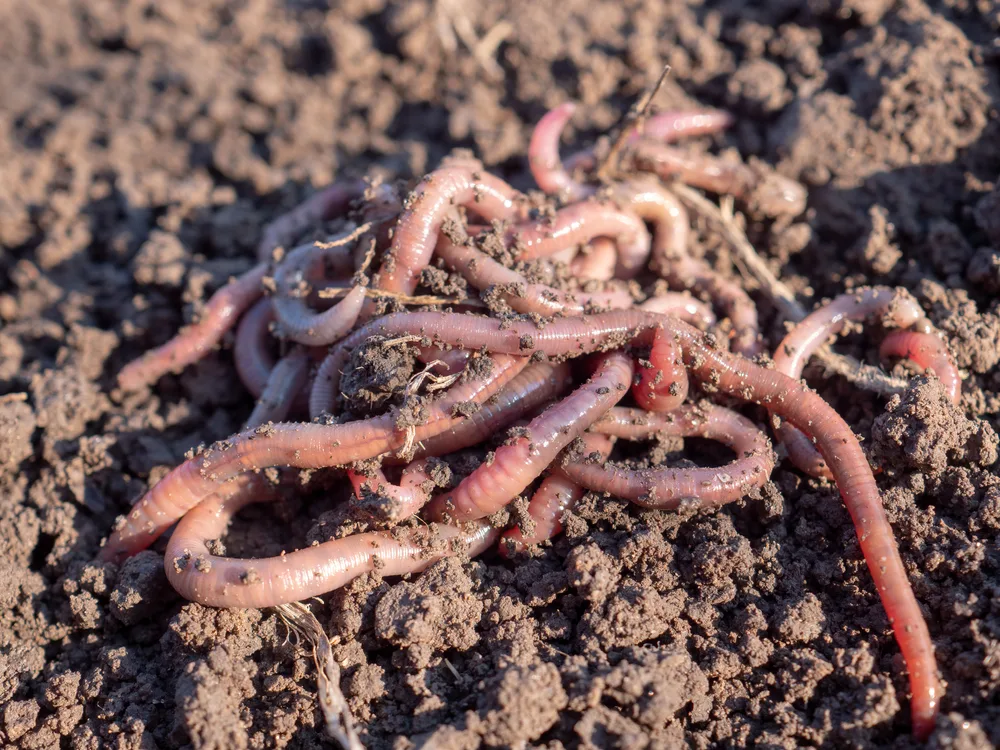
Worms aren’t picky creatures, though they are sensitive ones. Just as we have laid out some situations in which they disappear from the soil, here are some ways you can entice them back:
- leave plenty of organic matter on the soil surface
- mulch, mulch and more mulch – this keeps the soil cool and moist (and out of the direct sun), as well as providing the worms with something to eat
- add matured compost
- keep soil moist by using groundcovers
- reduce, or eliminate, tilling of your garden
- make sure your soil pH stays above 4.5
- stop using any and all chemicals – go organic!
- replace any contaminated soil, for the benefit of the earthworms as well as yours
Once you’ve done all of the above, the quickest way to introduce more worms into your garden soil is to buy and release them. These days you can buy anything on the internet and garden worms are no exception.
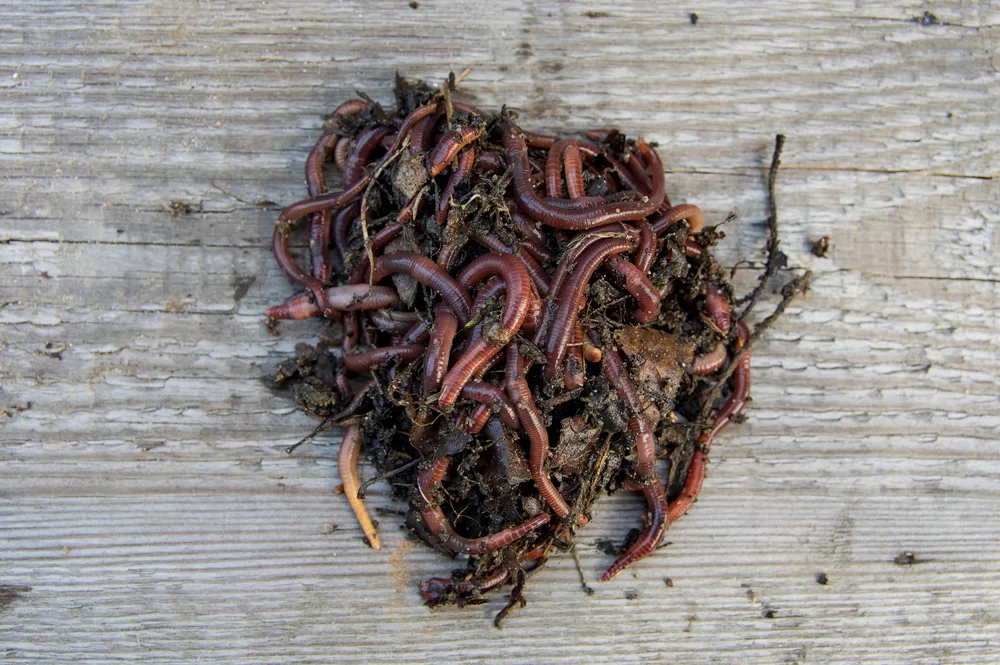
This listing for 2 lbs of European Nightcrawlers is ideal for populating your garden with earthworms. Just spread them on your soil on a dry day and they’ll burrow down helping to aerate and fertilize your soil.
Don’t think for one second that you can fool the earthworms. It simply won’t work to toss a bunch of worms into contaminated soil and hope for the best. They also need a clean home to live, eat and make worm castings in.
Again, moisture is a concern. Too dry and they will suffocate. Too wet and they will drown. It’s not easy being a worm. Earthworms do not have lungs, they do, however, breathe through their skin which is coated with mucus. They are also interesting due to their 5 hearts – or aortic arches.
Hearts aside, earthworms also have soil preferences. Sandy soils are often too abrasive, as one could imagine. Clay soils may be too wet and compact.
If you don’t have the perfect soil conditions to host worms in your garden…
Never fear, a vermicomposting bin is here to save the day. All you have to do is feed your worms with organic matter from the garden, let the worms create a nutritious compost, then add it back to your garden to increase the quality of your garden crops.
With a worm bin, you can still work within the realm of a cyclical nature.
Any excess worms that you produce, even if they aren’t quite ready to go back to the garden soil, can be fed to your backyard chickens, fed to fish, sold as bait or to others looking to start their own worm composting scheme.
Are you ready to start attracting more earthworms to your garden?
Just for fun…
If you are need of a wormy science lesson (for older kids and those who are young at heart), the following book is a must read!
There’s a Hair in My Dirt! A Worm’s Story by Gary Larson

Get the famous Rural Sprout newsletter delivered to your inbox.
Including Sunday musings from our editor, Tracey, as well as “What’s Up Wednesday” our roundup of what’s in season and new article updates and alerts.


